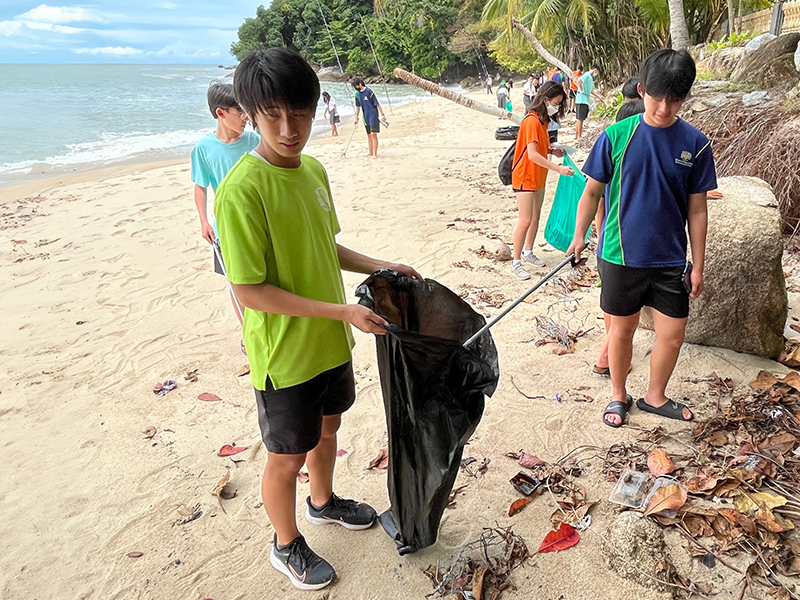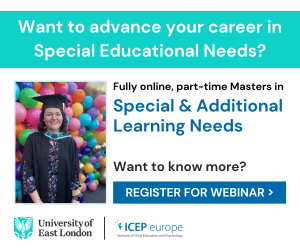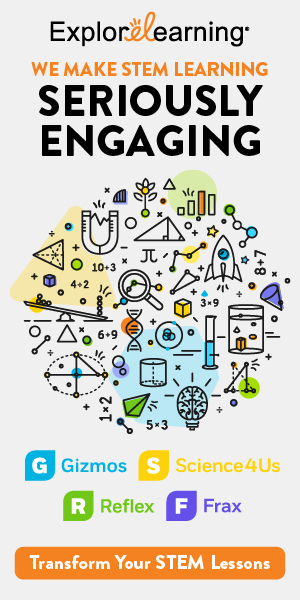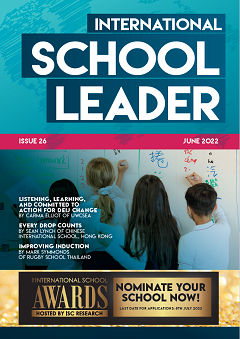By Samuel Hodge
At the heart of our educational philosophy lies a commitment to nurturing responsible and compassionate individuals. This flows through the Prince of Wales Island International School (POWIIS) guiding statements “Where excellence, compassion and mutual respect unite to shape the leaders of a better tomorrow.” and “We strive to contribute to a more sustainable and peaceful world.” There has never been a more important time to develop skills, and what better way to do this than through the integration of Service learning and the Sustainable Development Goals (SDGs), working on real-world problems with external partners such as NGOs from across the island? The SDGs serve as a compass guiding our students towards a deeper understanding of real-world issues.
The POWIIS Project is not just one initiative, it is close to 30 with various overlaps that support each other with the students at the heart of what we do. The projects are overseen by 4 separate student committees (Humanitarian and Wellbeing, Sustainable Development, Eco and Soft Skills) between them they all aim to cover the 17 SDGs each with its specific focus. For example, beach cleaning on its own is great as the starting point but if you build layers it has far more impact. The next layer is sorting the waste collected (selling, cleaning, recycling or managing refuse) building on the recycling in school and making products especially out of plastic. Moving on you sell those items and then invest in education and bins back at the beach creating a circular project.
“The amalgamation of service learning and SDGs is not just an educational strategy but a call to action”
Navigating the landscape: A glimpse into our initiatives
Our students engage in The POWIIS Project, a service learning/passion project curriculum addressing local environmental and social concerns. From waste management to sustainable practices, they not only make a tangible impact in our community but also link their actions to broader global goals, fostering a sense of interconnectedness.
One example of this is how students build layers on top of a simple idea by taking Simon Sinek’s Golden Circle.
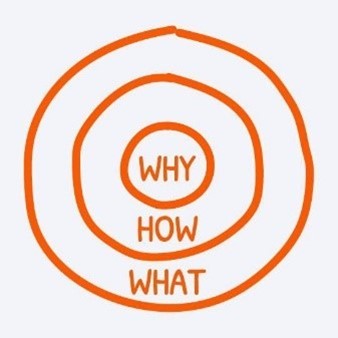
Photo: Simon Sinek’s Golden Circle.
Why should we protect the ocean?
How do we investigate further?
What impact does Penang’s coastal rubbish have on the local community?
To tackle these questions and support us in our mission to protect the ocean and Penang’s ecology we needed further investigation. To do this we formed a collaboration with Universiti Sains Malaysia and the Centre for Marine and Coastal Studies (CEMACS) to deepen our understanding of oceanic ecosystems and the threats they face. Penang’s coastal rubbish not only poses environmental hazards but also impacts the local community by endangering public health, harming marine life, and disrupting economic activities such as tourism and fishing. By leveraging academic partnerships and research initiatives, we can delve deeper into the reasons for ocean protection and develop effective strategies to address issues like coastal pollution, safeguarding both the environment and communities dependent on marine resources. Every week our students undertake research projects such as jellyfish monitoring, dolphin spotting, turtle tagging and beach clean-ups around the island reporting the data back to CEMACS. This, in turn, has supported both parties in working toward the SDG’s.
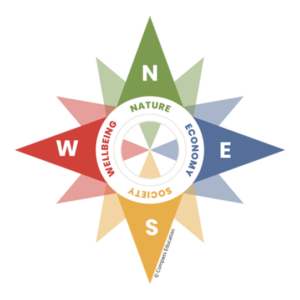
Photo: The Sustainability Compass, Compass Education
The Sustainability Compass is an easy-to-understand framework that is integral to our approach. Much like a regular compass that helps us map the territory and find our direction, it directs our focus to four key areas: Nature, Economy, Society, and Wellbeing. These components collectively shape our understanding of the interconnectedness of global challenges. Now each time we go out for a beach clean we engage with the community and impasse knowledge, as a beach clean while effective, does not tackle the issue of education and the waste at its source. Our students delve deeper, collecting data, sorting waste, and repurposing materials, turning a simple beach clean into a cross-curricular model with links to various subjects. One single item of rubbish could have 5-10 students involved from talking to residents, to recording the data, understanding coastal tides, sorting, cleaning, organising, shredding, recycling, manufacturing, educating.
Collaborative learning spaces
Imagine a classroom where students take charge and work vertically across ages, cultures, genders, a true melting pot collaborating on passion projects that transcend traditional subjects. Service learning projects become the bridge between theory and practice, creating a dynamic learning space where students actively contribute to solutions for challenges outlined in the SDGs and the local area. Through this model, students share their knowledge in the community, engaging in wildlife surveys and protecting and monitoring jellyfish, creating a community farm and use the produce to feed the needy through a soup kitchen and make products out of plastic waste like flowerpots and carabiners. This collaborative approach not only supports wider society but also provides invaluable learning opportunities.
Learning without walls
In our commitment to fostering a holistic and immersive educational experience, we embraced the concept of “Learning Without Walls.” This initiative transcends traditional classroom settings, encouraging students to explore beyond physical and conceptual boundaries. Through various outdoor and experiential learning opportunities, students gain a deeper understanding of theoretical concepts and develop crucial life skills. The “Learning Without Walls” garden is not just a service to support wider society; it is an amazing learning opportunity to approach and extend beyond the garden. Interdisciplinary projects challenge students to synthesise knowledge from various disciplines, fostering a more comprehensive understanding of complex issues.
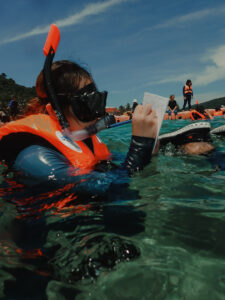
Photo: POWIIS Marine Collections
A call to action
In conclusion, the amalgamation of Service learning and SDGs is not just an educational strategy but a call to action. It’s a call to nurture compassionate leaders who understand the power of collective effort. Let’s continue this journey together, weaving a tapestry of change that transcends borders and generations.
Practical tips for school leaders:
- Align initiatives with mission and values: Ensure that service learning initiatives align with the school’s mission and values, creating a cohesive approach to global citizenship education.
- Promote interdisciplinary learning: Encourage the integration of subjects in service learning Projects and vice versa, fostering a comprehensive understanding of real-world issues. Embed the links into the curriculum map of subjects.
- Foster collaboration: Establish partnerships with NGOs, stakeholders, and the community to drive impactful change and promote a sense of global interconnectedness.
- Encourage reflection and dialogue: Create spaces for students to engage in reflection and dialogue about their Service learning experiences, fostering a deeper understanding of their role in contributing to the SDGs.
- Explore learning beyond classrooms: Embrace experiential learning opportunities and initiatives like “Learning Without Walls” to provide students with a holistic educational experience.
- Empower future leaders: Remind students that their actions today have a lasting impact on the future, instilling a sense of responsibility and leadership in contributing to positive change.
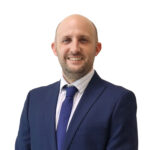
Samuel is the Deputy Principal at Prince of Wales Island International School. You can connect with him on LinkedIn.
